What would the UK be like without a monarchy?
The British public still broadly favours the royals but support is waning among younger people
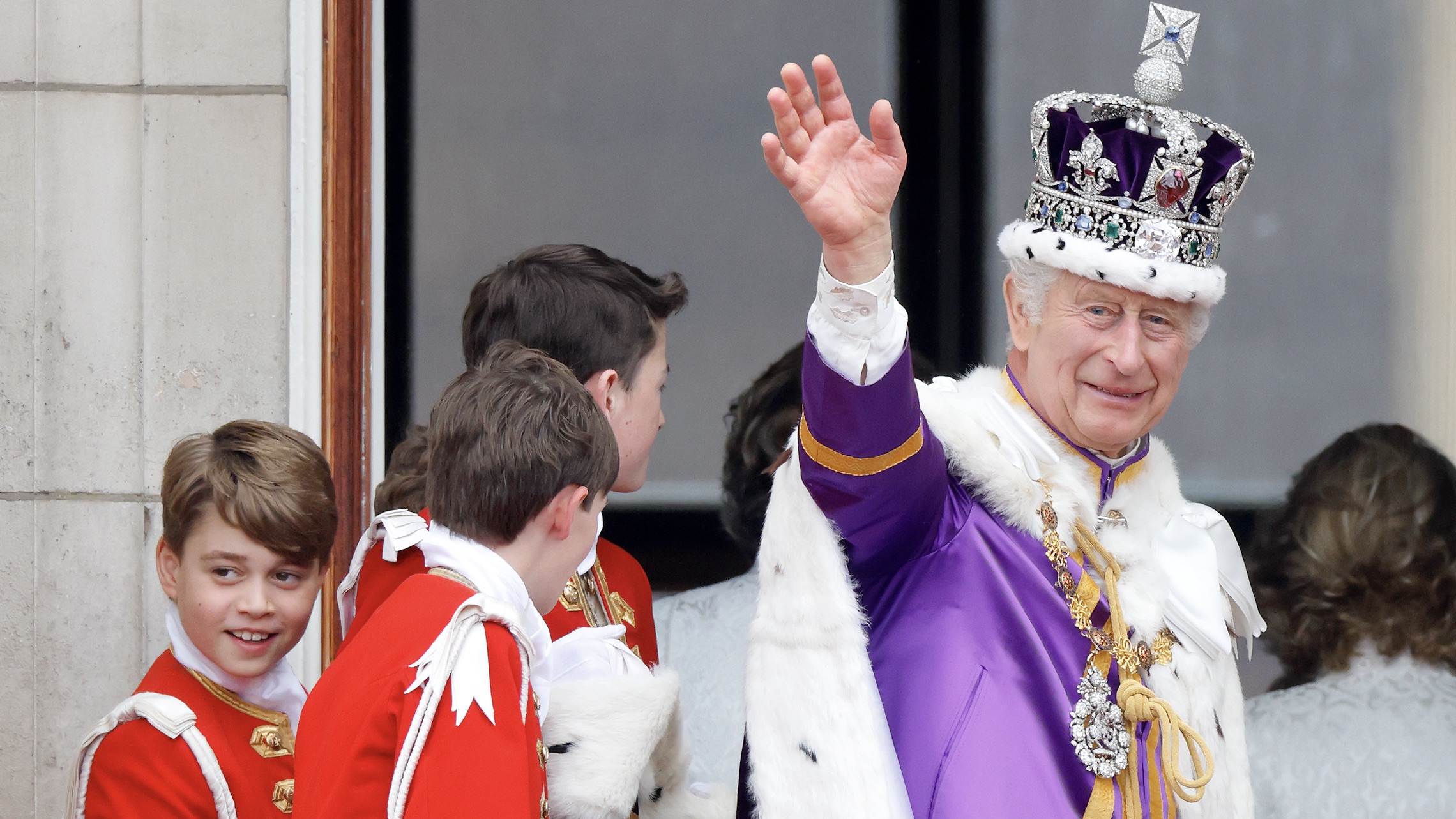
A free daily email with the biggest news stories of the day – and the best features from TheWeek.com
You are now subscribed
Your newsletter sign-up was successful
King Charles was presented with the Scottish crown jewels this week at a ceremony in St Giles’ Cathedral in Edinburgh to mark his coronation.
Among the wellwishers and onlookers were 200 protesters who “claimed a prime spot outside the cathedral”, said The Telegraph.
Speaking at the pro-republic protest was Scottish Greens co-leader and minister Patrick Harvie, who said he wants the UK to “be a modern, democratic republic where the power of the head of state is elected rather than inherited”.
The Week
Escape your echo chamber. Get the facts behind the news, plus analysis from multiple perspectives.

Sign up for The Week's Free Newsletters
From our morning news briefing to a weekly Good News Newsletter, get the best of The Week delivered directly to your inbox.
From our morning news briefing to a weekly Good News Newsletter, get the best of The Week delivered directly to your inbox.
A YouGov poll for BBC “Panorama” in April “showed support for the monarchy”, with 58% of those polled “preferring the institution to an elected head of state”, said Insider. But enthusiasm among younger people “remained significantly lower”, with just 32% between 18 and 24 supporting the monarchy.
“Nothing lasts forever,” the i news site added, and Nick Barber, professor of constitutional law and theory at Oxford University’s Trinity College, “feels certain that one day the nation will command its king or queen to stand down”. But what would the UK be like if this were to happen?
What did the papers say?
The monarchy “works really well when you have a monarch like the late Queen, who is able to act as a figurehead”, said Barber. But because “you appoint the monarch on the basis of birth”, sooner or later somebody “who doesn’t have the talents to perform that role” would be appointed.
Although it “would almost certainly take decades at least”, the site continued, but Barber thinks “it’s inevitable that we will move to a republic”.
A free daily email with the biggest news stories of the day – and the best features from TheWeek.com
Countries including Greece and Bulgaria have abolished their monarchies “through public referendum”, said Insider.
Britain would need a “two-step” referendum, Robert Hazell, professor of government and the constitution at the Constitution Unit of University College London, told i news. The first would be for the people to decide if they wanted to become a republic, he said. The second would be on how to choose the head of state.
Barbados became a republic in 2021. Then, “two days after the Queen’s death”, Antigua and Barbuda’s prime minister said the nation would “probably hold a referendum” within three years.
A “stampede” of republicanism isn’t expected immediately” but there may be a “domino effect around the Commonwealth”, Barber added. And he thinks “we’ll see Australia and New Zealand and possibly Canada saying they no longer what to be monarchies” within the next decade. This “would come too soon to encourage British voters to do the same straight away” but it may “begin a gradual shift”.
Without a royal family, “the people of Britain would have a more fair and even democracy”, according to The Latch. This is because it would mean the end of a process called the Queen’s or King’s consent, under which more than 1,000 laws were “vetted by Queen Elizabeth and King Charles before they got the stamp of approval”.
The House of Lords “would likely go” too, with an end to Parliament’s second chamber meaning an end to the 92 hereditary peers who “are from bloodlines that inherit political power”.
What next?
Abolishing the monarchy would, however, carry implications for Britain’s place in the world. “We live in an era of soft power,” said royal writer Robert Hardman at a debate hosted by The New Statesman in May. “Of course the monarch is irrational,” he added. “But the fact is, it has served us incredibly well, and it would be an act of monumental folly and self-harm to get rid of it.”
Some “fear a republic could lead to a politician grabbing even more power” than the prime minister holds, said i news. An alternative may be “people who have never held political office” appointed as heads of state, said Hazell. An example is the “largely ceremonial” Irish precedency.
Buckingham Palace “could become a permanent tourist attraction” in the event the monarchy was abolished and the King “were to officially move out”, said Insider. The palace belongs to the Crown Estate, but “is not the private property of the King”, according to its official website.
This would also apply to Windsor Castle and the Palace of Holyroodhouse in Edinburgh. It’s likely either Balmoral Castle or Sandringham “could be chosen as a new permanent residence”.
While “it’s possible that Charles would retire from public life if the monarchy was abolished”, the younger royals such as Prince William and Kate Middleton “would follow Prince Harry and Meghan Markle’s lead and try to shape their own careers”.
Keumars Afifi-Sabet is a freelance writer at The Week Digital, and is the technology editor on Live Science, another Future Publishing brand. He was previously features editor with ITPro, where he commissioned and published in-depth articles around a variety of areas including AI, cloud computing and cybersecurity. As a writer, he specialises in technology and current affairs. In addition to The Week Digital, he contributes to Computeractive and TechRadar, among other publications.
-
 How the FCC’s ‘equal time’ rule works
How the FCC’s ‘equal time’ rule worksIn the Spotlight The law is at the heart of the Colbert-CBS conflict
-
 What is the endgame in the DHS shutdown?
What is the endgame in the DHS shutdown?Today’s Big Question Democrats want to rein in ICE’s immigration crackdown
-
 ‘Poor time management isn’t just an inconvenience’
‘Poor time management isn’t just an inconvenience’Instant Opinion Opinion, comment and editorials of the day
-
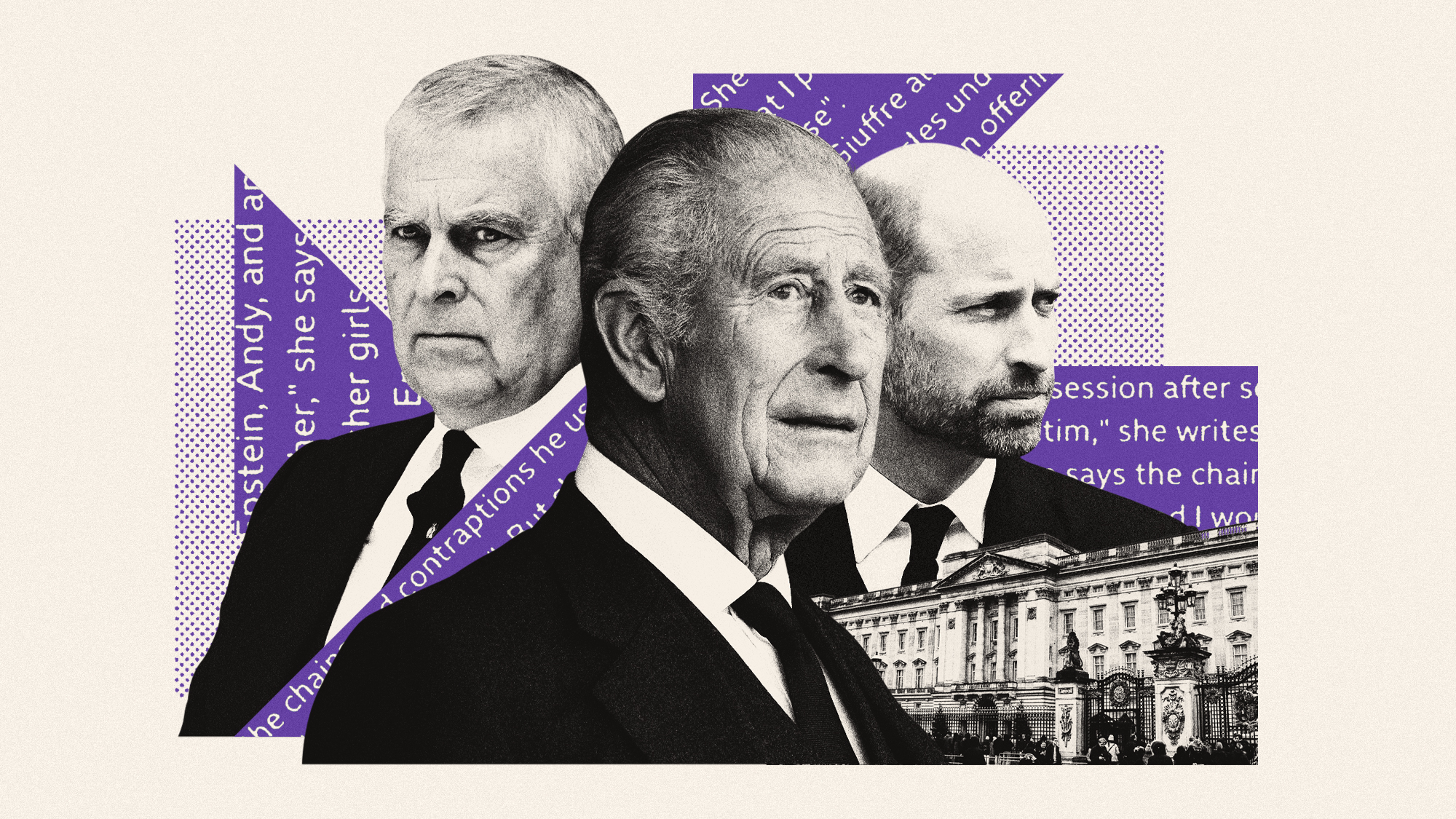 Prince Andrew: is the royal family doing enough?
Prince Andrew: is the royal family doing enough?Today’s Big Question King Charles faces calls for tougher action against Andrew after latest allegations about Virginia Giuffre and Jeffrey Epstein
-
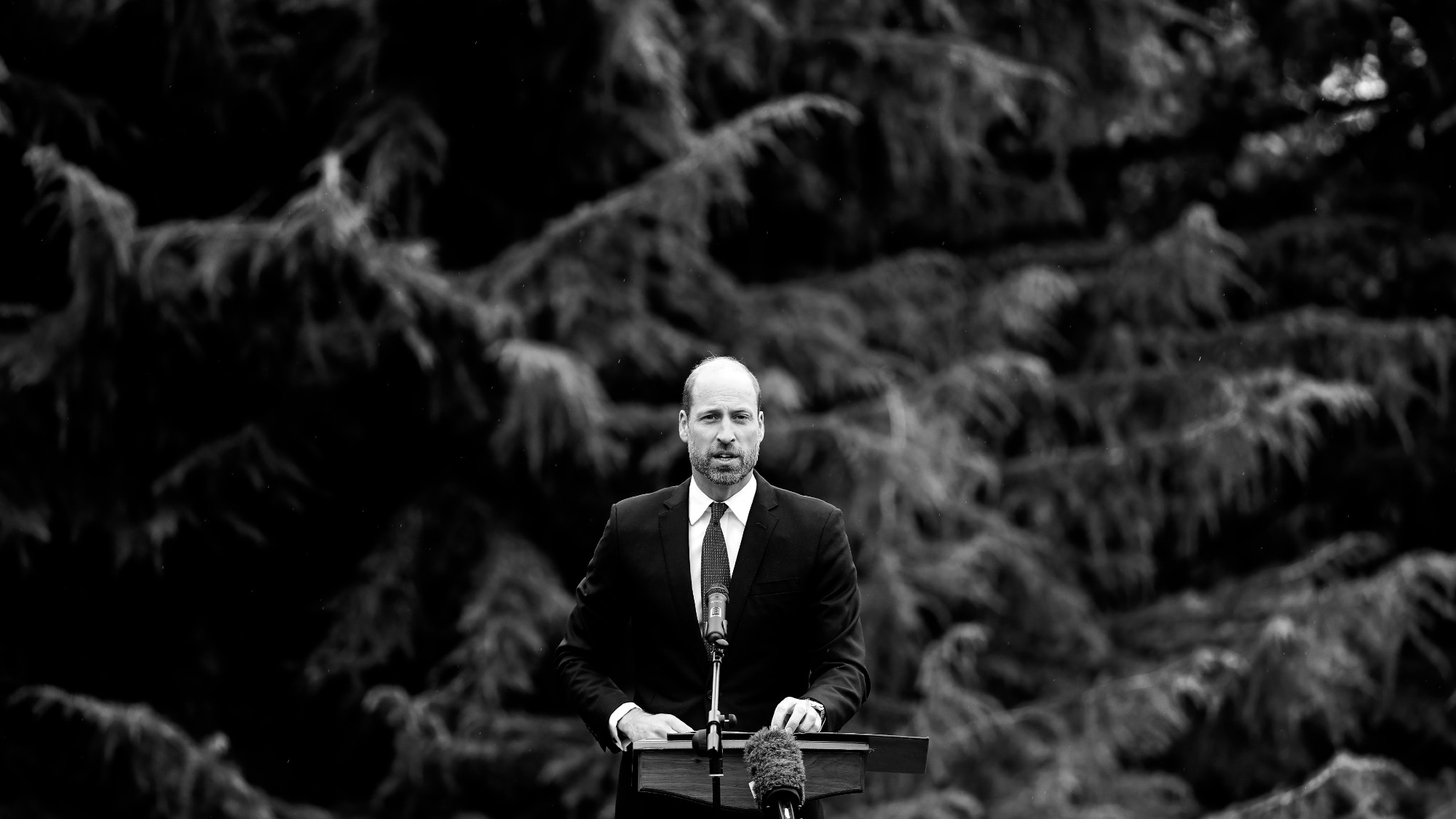 What will William be like as king?
What will William be like as king?Today's Big Question Prince of Wales said he won’t be ‘restricted’ by history when he takes the throne
-
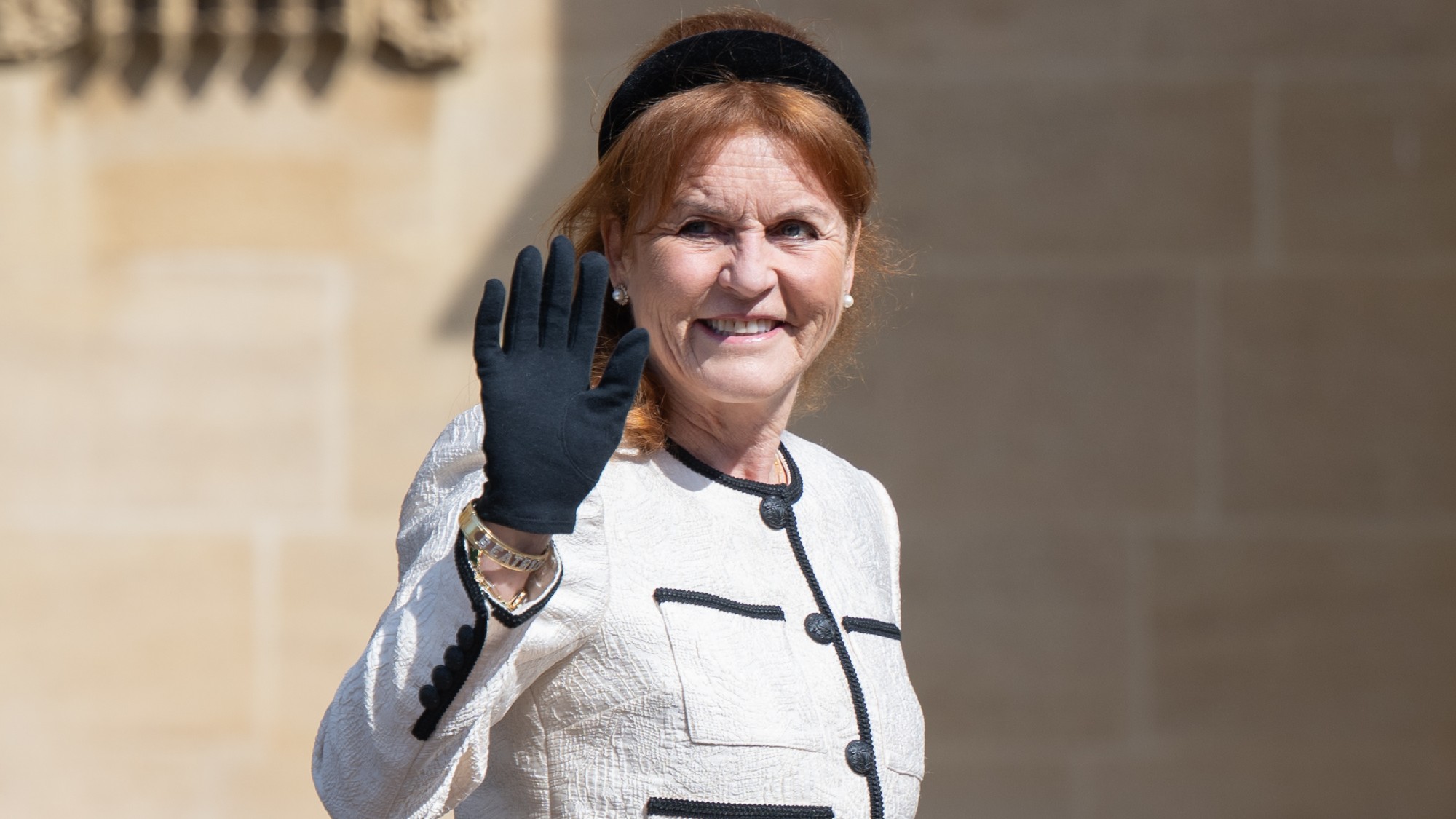 Sarah Ferguson: a reputation in tatters
Sarah Ferguson: a reputation in tattersIn the Spotlight After emails surfaced revealing ties to Jeffrey Epstein, weeks after she claimed to cut contact, her charities are running for the hills
-
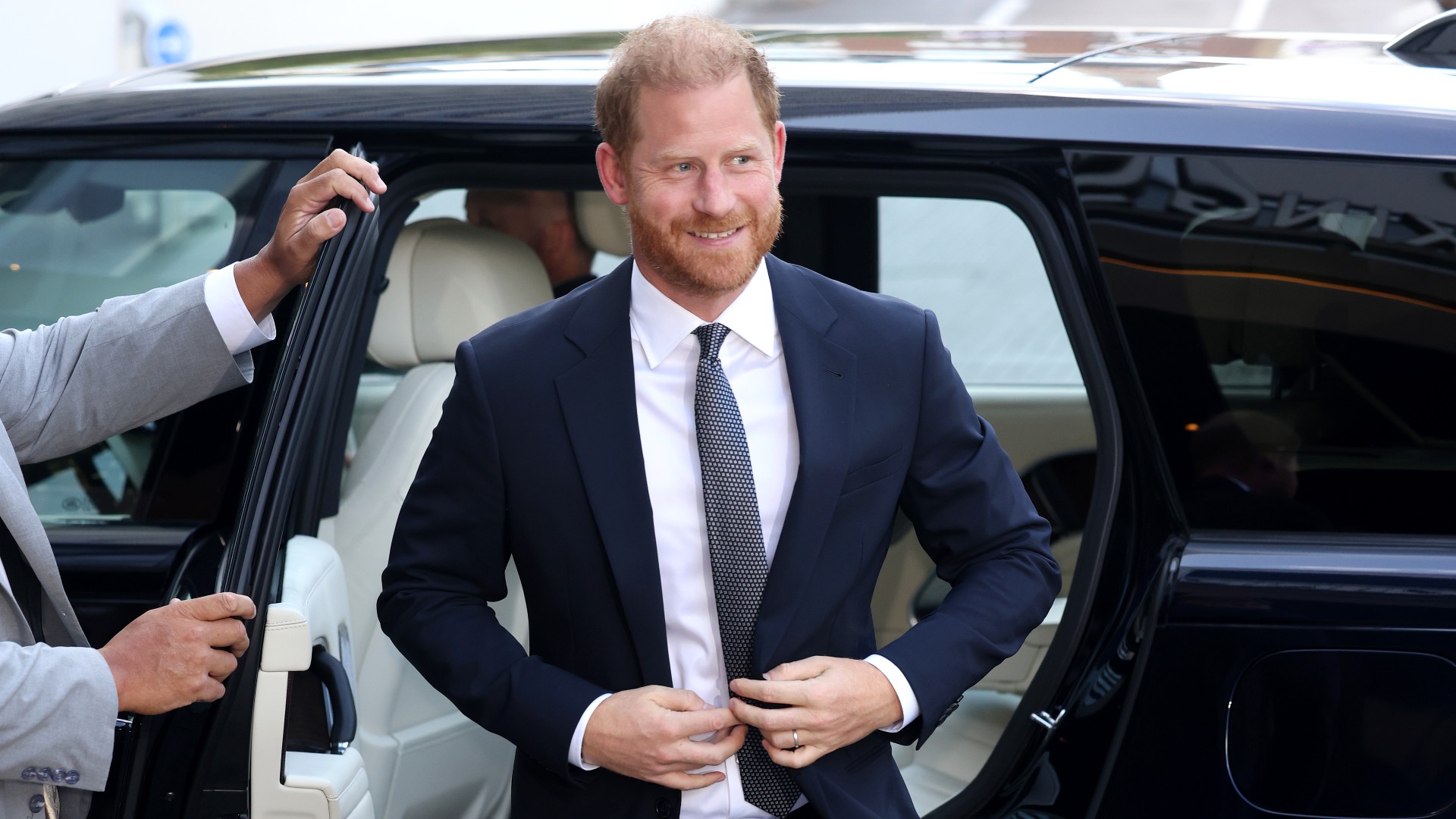 Prince charming: Harry’s tea with King sparks royal reconciliation rumours
Prince charming: Harry’s tea with King sparks royal reconciliation rumoursTalking Point Are the royals – and the UK public – ready to welcome the Duke of Sussex back in?
-
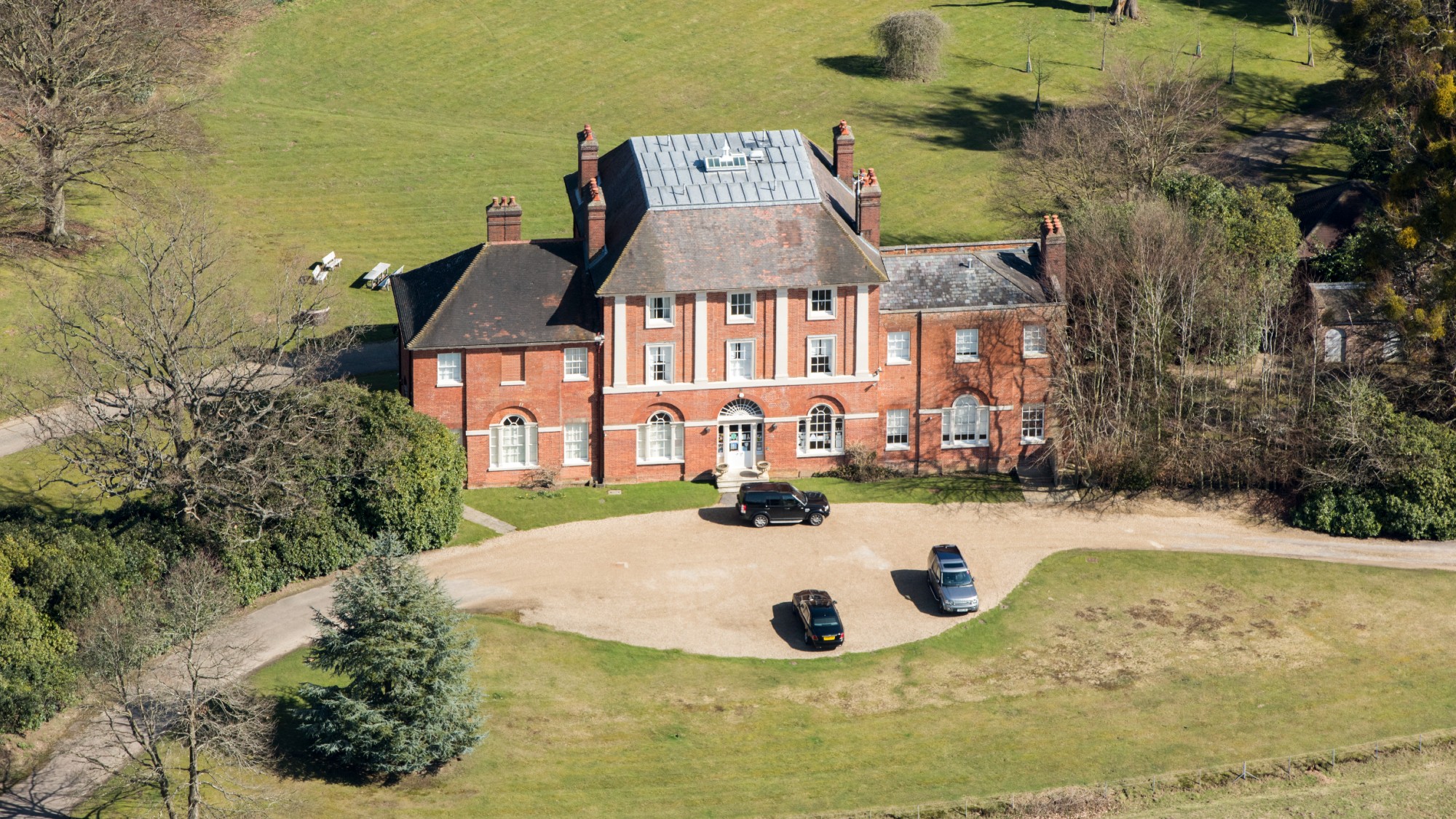 Forest Lodge: William and Kate's new home breaks with royal tradition
Forest Lodge: William and Kate's new home breaks with royal traditionIn the Spotlight Wales' said to hope move to 'forever home' in Windsor Great Park will 'leave unhappy memories behind'
-
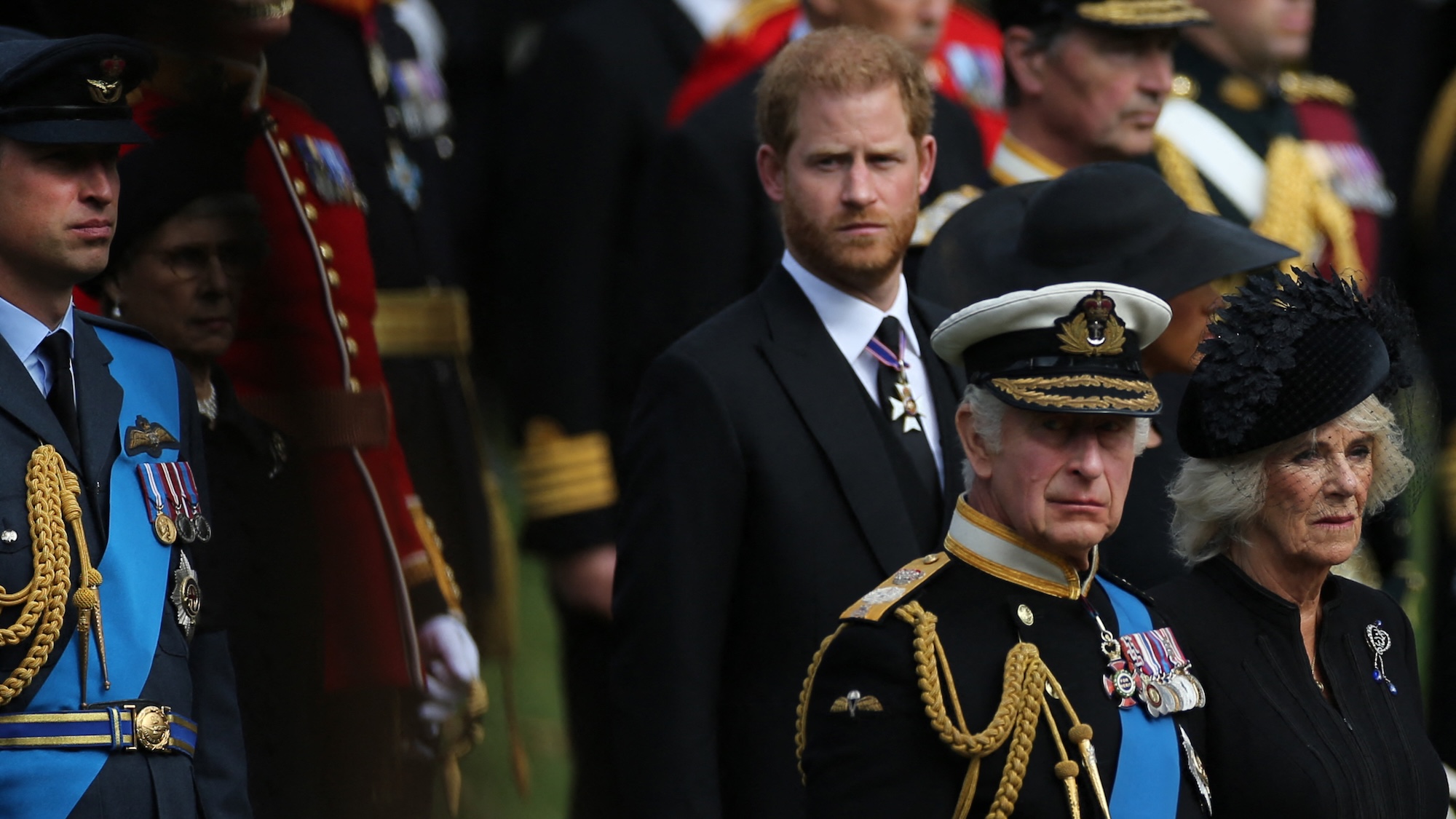 King Charles and Prince Harry: peace in our time?
King Charles and Prince Harry: peace in our time?Talking Point Leaked images of a secret meeting between royal aides suggest a dialogue is beginning to open up
-
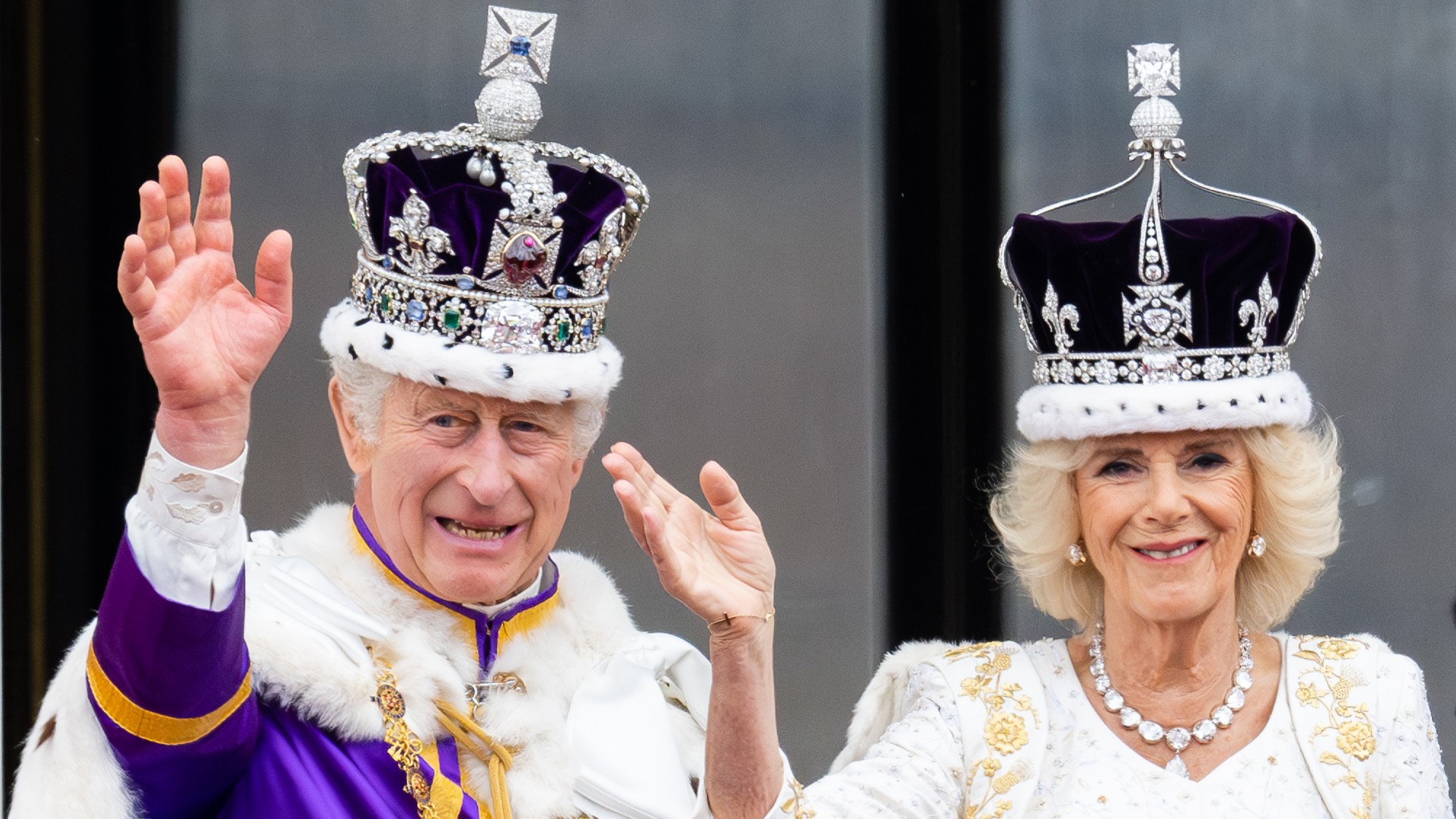 King Charles and the Sovereign Grant: how UK taxpayers fund the monarchy
King Charles and the Sovereign Grant: how UK taxpayers fund the monarchyThe Explainer Royals received £86.3m from government last year – and they are in line for a 50% increase
-
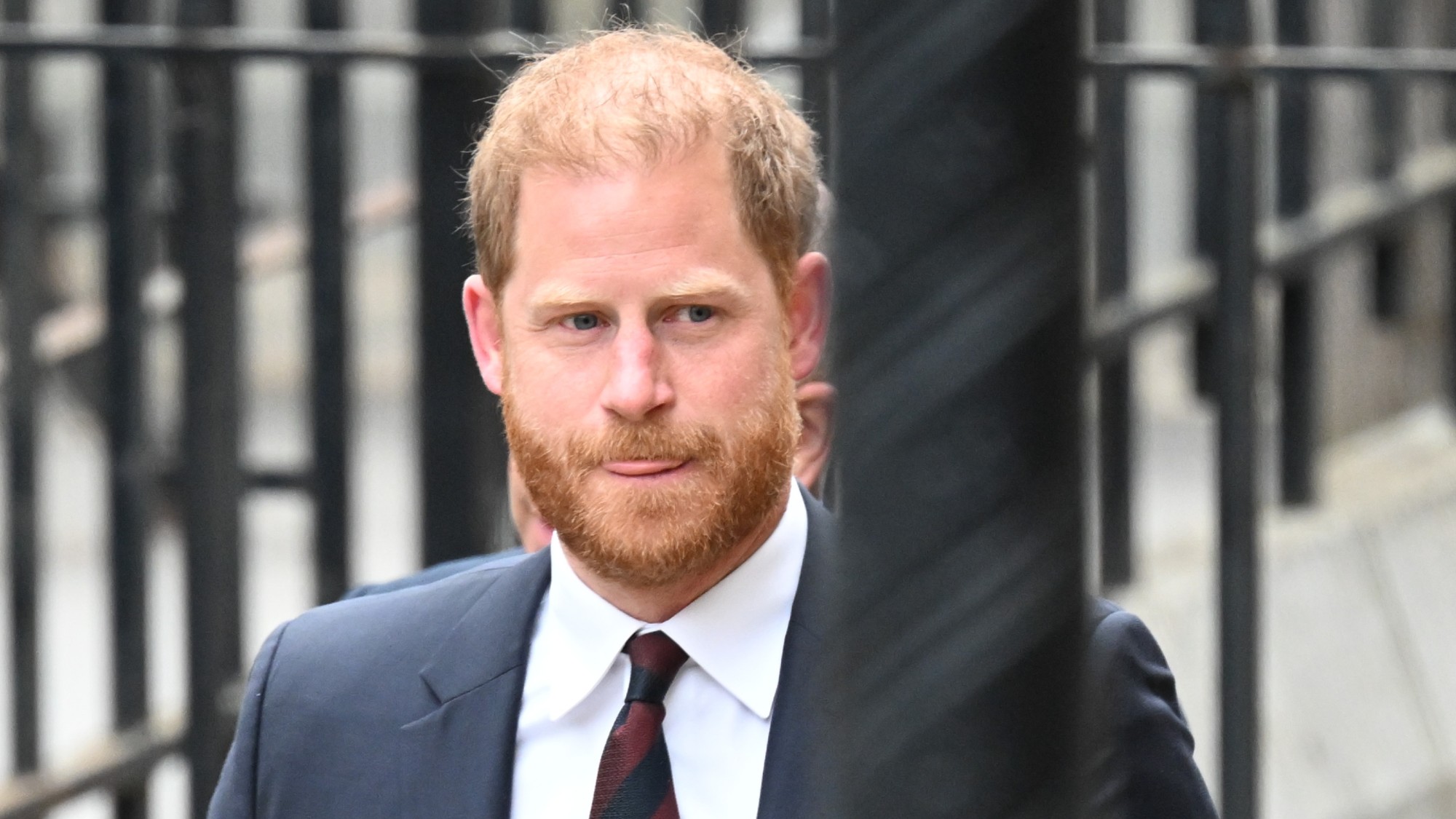 Prince Harry's 'bombshell' BBC interview
Prince Harry's 'bombshell' BBC interviewTalking Point Royal claims he is not safe to visit the UK and fuels speculation over King Charles' health in 'extraordinary' BBC interview